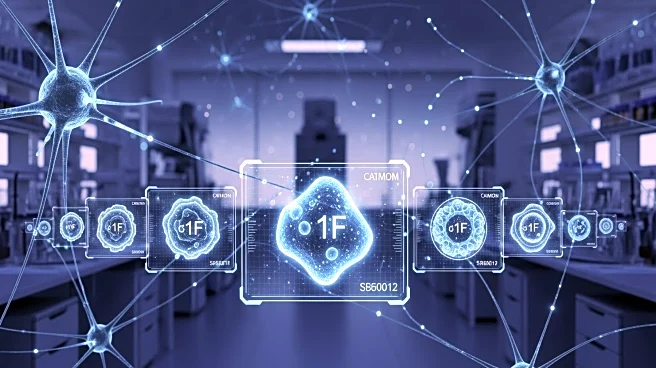What's Happening?
SyntaxisBio, co-founded by Leonidas Bleris, PhD, and Alexander Pertsemlidis, PhD, is addressing the widespread issue of misidentified or cross-contaminated cell lines in biomedical research. The company
has developed unique cell line identifiers using physical unclonable functions (PUFs), inspired by semiconductor technology. This approach leverages CRISPR genome editing to introduce random insertions and deletions during DNA repair, creating robust and unique identifiers for each cell line. The technology aims to ensure the provenance of cell lines, reducing the risk of questionable research results and economic damage. SyntaxisBio has licensed patents from the University of Texas Health San Antonio and received support from the National Institutes of Health (NIH) to further develop this technology.
Why It's Important?
The development of unique cell line identifiers is crucial for the integrity of biomedical research. Misidentified cell lines can lead to inaccurate research findings, affecting scientific progress and potentially causing significant economic losses. By ensuring the provenance of cell lines, SyntaxisBio's technology can improve the reliability of research outcomes and enhance the quality of biomanufacturing processes. This innovation has the potential to benefit researchers, institutions, and industries reliant on accurate cell line identification, ultimately contributing to more trustworthy scientific advancements.
What's Next?
SyntaxisBio plans to use Phase I funding from the NIH to explore ways to monitor the age of cell lines based on changes in the frequency of unique identifiers. This could provide additional insights into cell line stability and longevity, further enhancing the reliability of research and biomanufacturing processes. The company is also working on the next generation of PUF-based technologies, which may offer even more precise identification capabilities.
Beyond the Headlines
The ethical implications of misidentified cell lines are significant, as they can lead to wasted resources and potentially harmful conclusions in medical research. By addressing this issue, SyntaxisBio is contributing to a more ethical and responsible scientific community. Additionally, the use of CRISPR technology in this context highlights the growing intersection of genetic engineering and data security, paving the way for innovative solutions in biotechnology.










